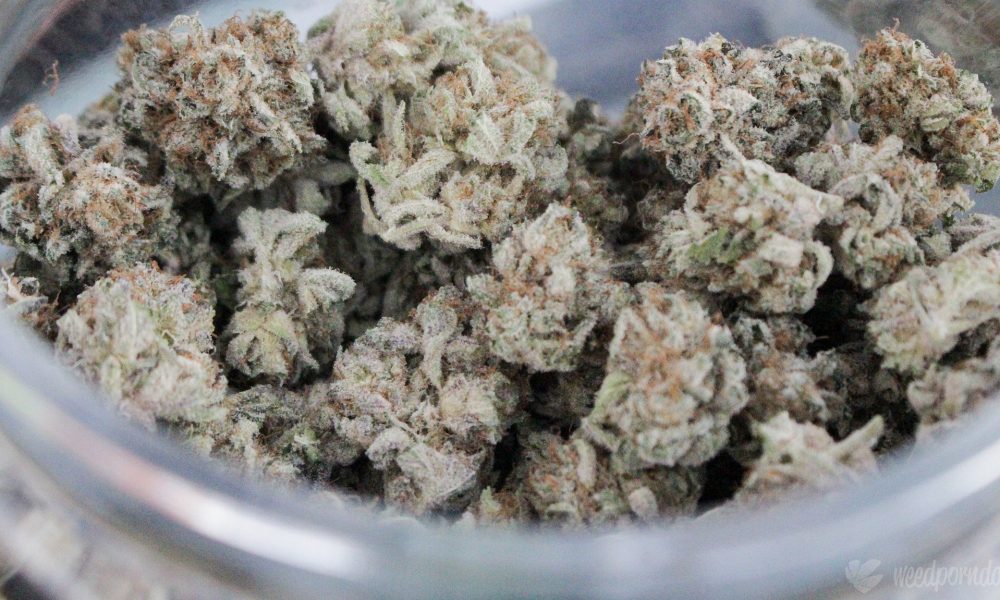A Republican Missouri lawmaker on Tuesday unveiled a bill to tax and regulate adult-use marijuana in the state. It would provide opportunities for expungements, authorize social consumption facilities and permit cannabis businesses to claim tax deductions with the state.
Rep. Ron Hicks (R) filed the omnibus legislation, titled the “Cannabis Freedom Act.” He said in a memo to colleagues that the measure was drafted in a way that thoughtfully incorporates elements from “every marijuana bill filed this session” to create a “free but tightly regulated market for legal marijuana.”
Here’s what the cannabis legislation would accomplish as drafted:
Possession, home cultivation and licensing
The bill would allow adults 21 and older to purchase and possess cannabis from licensed retailers. There doesn’t seem to be a possession limit in the measure; it simply does away with existing statutes criminalizing the activity. Adults could also cultivate up to 12 plants for personal use.
The Missouri Department of Agriculture would be responsible for regulating the adult-use program, just as it currently does for hemp. It would be required to develop rules to issue temporary and annual licenses for cannabis retailers, growers, processors, transporters and wholesale distributors. There would be no cap on the number of licensees that could be approved.
Interestingly, the legislation also says that adults could “contract” with a licensed grower to cultivate up to 12 plants on their behalf for personal use and also work with licensed processors to produce marijuana products.
Social equity and consumer protections
Additionally, the measure contains expungement provisions, allowing people with non-violent marijuana convictions over activities made legal under the bill to petition the courts for record clearing. Those currently incarcerated would also be eligible for resentencing, and those on probation or parole would be allowed to use marijuana.
Police would not be allowed to use the odor of marijuana alone to conduct a warrantless search of a person’s private property under the legislation. And cannabis could not be used “as a factor in family court proceedings.”
The bill further stipulates that medical cannabis patient information cannot be shared with federal authorities.
—
Marijuana Moment is already tracking more than 1,000 cannabis, psychedelics and drug policy bills in state legislatures and Congress this year. Patreon supporters pledging at least $25/month get access to our interactive maps, charts and hearing calendar so they don’t miss any developments.![]()
Learn more about our marijuana bill tracker and become a supporter on Patreon to get access.
—
Taxation, banking and social use
The state Department of Revenue would set a tax rate for adult-use marijuana sales that could not exceed 12 percent. There would be no such tax on medical cannabis products.
Tax dollars that the state generates from the recreational market would be deposited into a “Cannabis Freedom Fund,” with revenue first covering the administrative costs of implementing the marijuana program. Remaining revenue would be “divided equally between teachers’ salaries, first responders’ pensions, and the Missouri veterans commission.”
Licensed marijuana businesses would also be able to make tax deductions with the state up to the amount that they’d otherwise be eligible for under federal law if they were operating in a federally legal industry. Cannabis companies across the country are required to pay federal taxes, but they’re barred from receiving tax benefits.
People who apply for a Missouri cannabis business licenses and pay the application fee could also deduct that cost if they’re ultimately denied licensing.
Hicks’s bill also adopts a provision from a separate cannabis bill that would allow for “hospitality permits” so that hotels, bars and restaurants could “sell and serve marijuana or marijuana products in private events or venues.”
He wrote in his memo to fellow lawmakers that this provision will the give the state’s hospitality industry a “chance to benefit from what is projected to be a +$2 billion market here in Missouri.”
State financial regulators could not “prohibit, penalize, take any adverse action against, or otherwise discourage a bank or trust company from providing financial services,” the text says. However, the bill would not require financial institutions to take on cannabis clients.
The measure explicitly states that interstate marijuana sales would be authorized if Congress moves to end federal prohibition.
Restrictions and room for improvement
“Additionally, this proposal prohibits sales to minors and does not prohibit enforcement of the impaired driving statutes if a driver is impaired by marijuana use while driving,” Hicks said. “Importantly, we sought input from lawmakers and law enforcement in several other states, including Colorado, Nevada, Oklahoma, and Illinois.”
“I specifically incorporated tight regulatory, compliance, and enforcement requirements developed by Oklahoma Rep. Scott Fetgatter (R),” he said, adding that the “goal here was to prevent criminal syndicates from gaming any licensing protocol to divert marijuana to illegal markets in other states.”
Hicks stressed that his 129-page omnibus bill “is not perfect and I urge your continued input as we move through the legislative process.”
The lawmaker also specifically noted that he’s working with members of the Black Caucus “to further ensure that startups in this market space can access loan and grant programs to ensure that entrepreneurs can compete on an equal playing field.”
He reiterated in a press release that the “Cannabis Freedom Act is the product of input from many different stakeholders including members of law enforcement and those who have endured incarceration for conduct that society now deems acceptable.”
New Haven Police Chief Chris Hammann and former Carter County prosecutor Rocky Kingree said in a joint statement that “law enforcement does not need to be tasked with the thankless job of marijuana prohibition anymore and the Cannabis Freedom Act allows for the reparative justice actions that will continue the work of repairing the relationship and trust between the government and its citizens.”
There’s at least some bipartisan buy-in in the legislature, too, with Rep. Michael Johnson (D) saying the bill “will put Missouri into the forefront of the evolving national conversation on ending marijuana prohibition.”
“From the offender release and expungement protocols to the opportunity for our hospitality sector to the potential to give our farmers more options in the market, this proposal is the right thing at the right time for our state,” he said.
Meanwhile, another Missouri Republican lawmaker is again making a push to place cannabis legalization on the ballot. But some activists aren’t waiting on the legislature to take action to refer the issue to voters, with one campaign officially launching signature gathering last month for a separate reform initiative.
Rep. Shamed Dogan (R) recently pre-filed his joint resolution to place a constitutional amendment on legalization on the 2022 ballot. He introduced a similar proposal last year, but it did not advance.
Under that plan, adults 21 and older could purchase, possess and cultivate cannabis for personal use. It also does not specify allowable amounts.
Separately, the group New Approach Missouri, which successfully got a medical cannabis initiative passed by voters in 2018, announced last summer its plans to put the reform proposal on the ballot through its new campaign committee Legal Missouri 2022.
The organization tried to place the issue of legalization before voters in 2020, but the COVID-19 pandemic derailed that effort.
Despite the health crisis, activists managed to collect 80,000 raw signatures within months, though they needed 160,199 valid signatures to qualify.
A different campaign, Fair Access Missouri, is separately exploring multiple citizen initiatives with the hopes of getting at least one on the ballot next year. Three of the four would create a system of legalized cannabis sales for adults 21 and older, while another would simply amend the state’s existing medical marijuana program.
Another state lawmaker filed a bill late last month to decriminalize a range of drugs including marijuana, psilocybin, LSD, MDMA and cocaine.
The measure’s introduction came after a Republican Missouri legislator filed a separate bill to give residents with serious illnesses legal access to a range of psychedelic drugs like psilocybin, ibogaine and LSD through an expanded version of the state’s existing right-to-try law.
Nearly one out of every 10 jobs that were created in Missouri last year came from the state’s medical marijuana industry, according to an analysis of state labor data that was released by a trade group earlier this month.
Separately, there’s some legislative drama playing out in the state over a proposal that advocates say would restrict their ability to place Constitutional amendments on the ballot.
Legalizing Marijuana Would Help People Get Their Mail Delivered On Time, Congressman Says
Photo courtesy of WeedPornDaily.
Medical Disclaimer:
The information provided in these blog posts is intended for general informational and educational purposes only. It is not a substitute for professional medical advice, diagnosis, or treatment. Always seek the advice of your physician or other qualified healthcare provider with any questions you may have regarding a medical condition. The use of any information provided in these blog posts is solely at your own risk. The authors and the website do not recommend or endorse any specific products, treatments, or procedures mentioned. Reliance on any information in these blog posts is solely at your own discretion.







